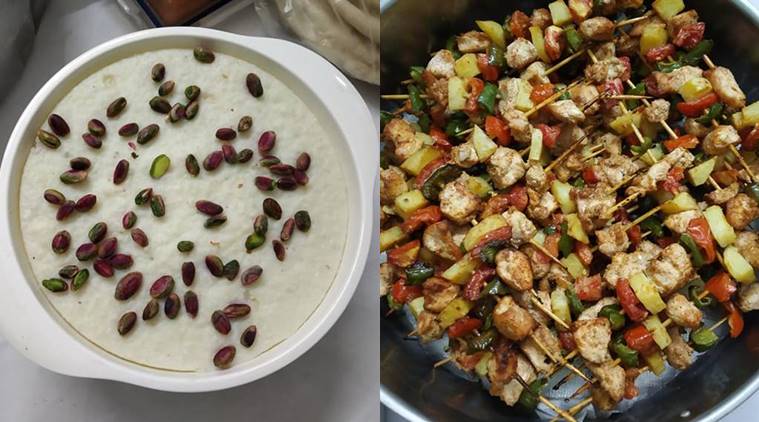 Afghani Shir Berenj (L) and Chicken Nycha Kebab (R) served at the pop-up kitchen in Khirki Extension. (Source: Photographs by Sreejata Roy)
Afghani Shir Berenj (L) and Chicken Nycha Kebab (R) served at the pop-up kitchen in Khirki Extension. (Source: Photographs by Sreejata Roy)
The women in the pop-up kitchen speak Pashto, Dari, Somali, French, English and broken Hindi. Even if they do not have a common tongue, their common language is food, and it is what has brought them together to start a pop-up kitchen.
The headscarf-clad women are a part of Khirki Living Lab – A Living Heritage, a brainchild of Sreejata Roy and her husband, Mrityunjay. The project, which started less than a year ago, focuses on building a network of social relationships through the daily act of cooking, sharing recipes, documenting them, and eating together in their living lab in Khirki Extension once a month.
The South Delhi locality is dotted with refugees and migrants. While most of them have created their own pockets in the motley neighbourhood, Roy’s endeavour to bring them together through food is an interesting attempt.
“It all started back in 2008”, says Sreejata. “Back then, when I was mapping Khirki, I came in contact with refugees and migrant workers and also locals in the area, and realised that they were missing a thread that could help them connect. So after receiving funds from Kiran Nadar Museum, I started this project.”
For the pop-up, a group of seven women refugees from Afghanistan, Somalia and Iraq came together, after a month long culinary trial in the kitchen, to showcase their cooking skills and serve some interesting dishes.
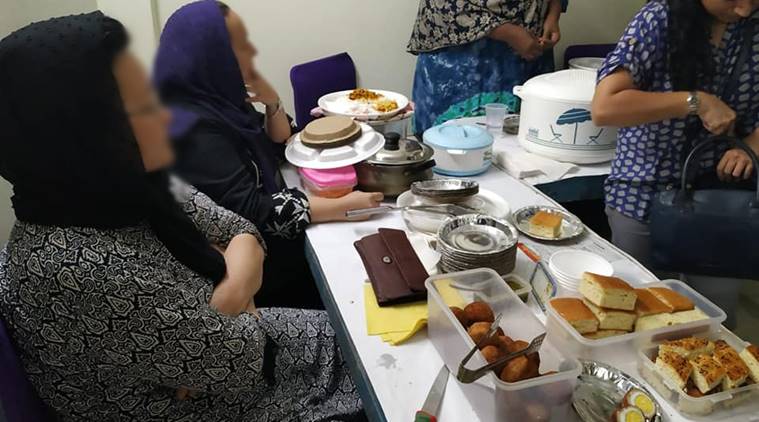 Women showcasing their food in the pop-up kitchen. (Source: Photo by Sreejata Roy)
Women showcasing their food in the pop-up kitchen. (Source: Photo by Sreejata Roy)
Mari, 40, from Afghanistan, volunteers to take me around the table. “These are my Afghani friends”, she says pointing out to two women in the corner.
The two women Hur and Farah from Kabul plates up vegetarian Afghani Ashak – pasta dumplings filled with tomato, chives, onions, Baklava – a rich dessert layered with phyllo dough and secured with honey or sugar syrup and garnished with nuts, Chicken Nycha Kebab – roasted chicken in a yogurt-based marinade, and Shir Parenj – rice pudding topped with finely chopped nuts.
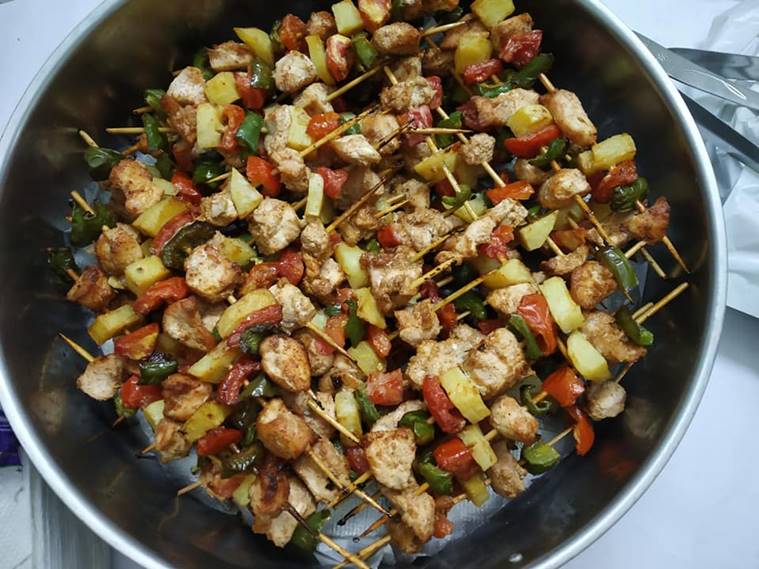 Chicken Nycha Kabab on display in the Afghan stall. (Source: Photo by Sreejata Roy)
Chicken Nycha Kabab on display in the Afghan stall. (Source: Photo by Sreejata Roy)
“I have not tasted anything like this anywhere in Delhi. The food is simple, elegant, authentic”, says Anubhav Sapra, head of Delhi Food Walks.
As I sample the Shir Parenj which tastes quite like phirni, only creamier, Hur complains, “We get only Basmati rice here. Not nice”. Mari and Farah nod in approval.
Moving on to the next table, Mari introduces me to Aya from Iraq. “I don’t understand her language”, Mari confesses. Even then, when Aya struggles with Indian currency with a customer, Mari runs to help her, without sparing a thought.
Aya dishes out Iraqi Kubbah – a dish made of mushroom and rice, Falafel – a deep-fried patty made of chick peas and nuts, Iraqi roti and raita. The Falafel goes really well with the Iraqi Roti and the Kubbah is a simple snack, easy on the spices but rich with flavour.
We move to Farida from Afghanistan, the senior member of the group. She lays out Afghani Mutton Nargis Kebab and beautiful tea cakes topped with sesame.
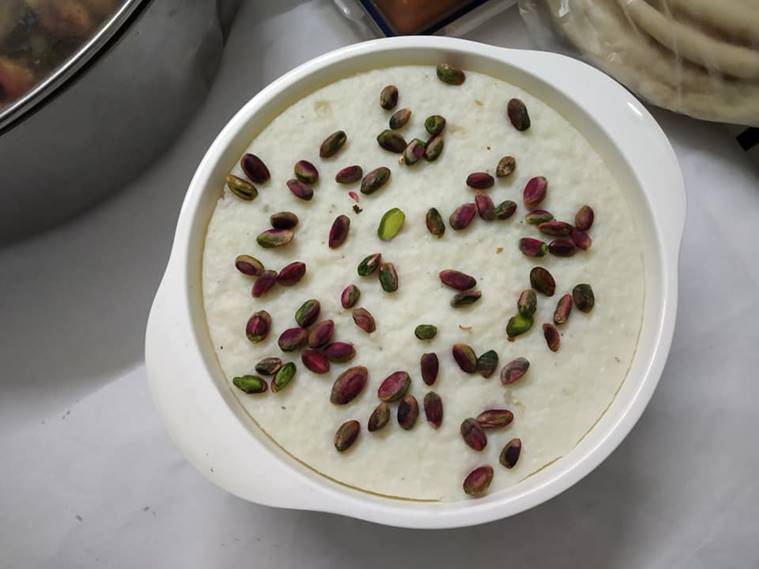 Afghani Shir Berenj – a version of Afghani rice pudding. (Source: Photo by Sreejata Roy)
Afghani Shir Berenj – a version of Afghani rice pudding. (Source: Photo by Sreejata Roy)
Guiding me to her own table, Mari serves Afghani Zaraksh Pulao – rice prepared with tangy berries, and a bowl of chicken kofta topped with fries on a plate. The creamy and spicy Kofta complements the sharp and tangy berry pulao.
On the Somalian corner, Shukri and Laila hand out Somali biryani topped with caramelised onions, melt-in-the-mouth korma, and Somali donuts.
“I come to Khirki Extension from Wazirabad. It takes me almost 500 rupees by cab, which is a lot of money. But whenever there is a pop-up, I come here. I get to meet so many lovely women and also get to taste some amazing food”, says Shukri.
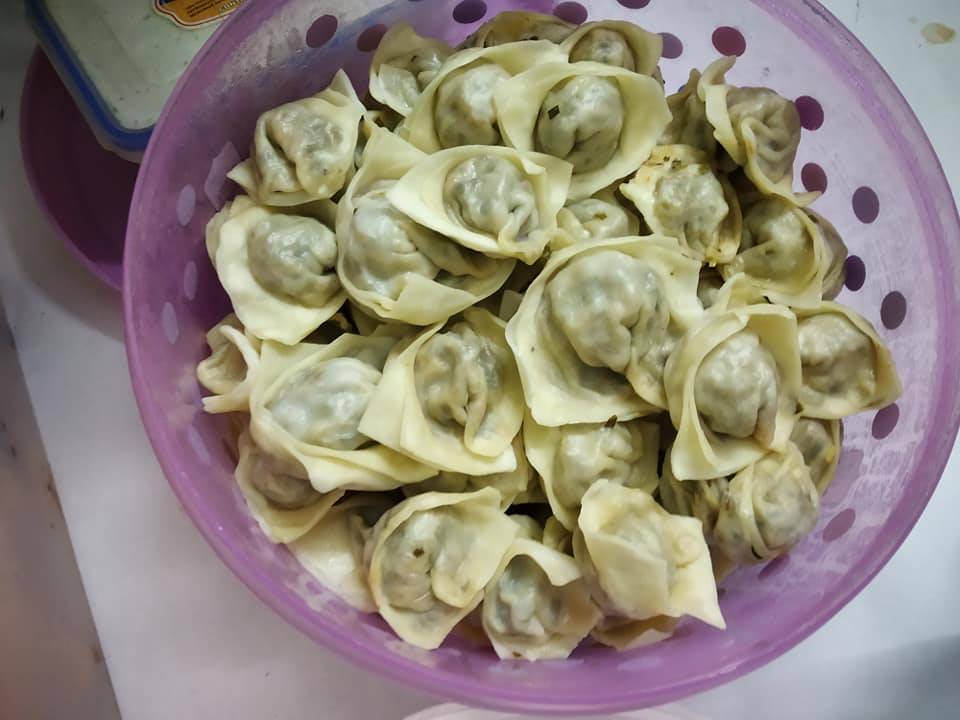 The food pop-up happens once every month. (Source: Photo by Sreejata Roy)
The food pop-up happens once every month. (Source: Photo by Sreejata Roy)
For most women in the kitchen, it has just been a little over a year since they have left their country and tried to set up a home in India. There have been hurdles on the way, but for now, the women have kept aside their worries and come together to build back their lives with the help of food.
Roy’s project is not merely an experimental kitchen. It is a community where the women get together and share their concerns, laughter and food, one family recipe at a time.
If you go:
Contact Sreejata Roy at 9811366140